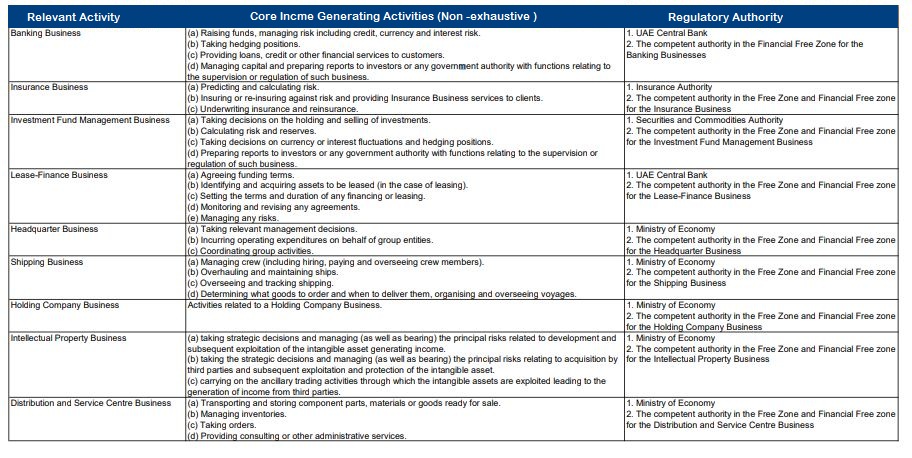Home » Economic Substance Regulations Relevant Activities in UAE
As part of the UAE’s commitment as a member of the OECD Inclusive Framework, and in response to an assessment of the UAE’s tax framework by the European Union (“EU”) Code of Conduct Group on Business Taxation, the UAE introduced a Resolution on the Economic Substance (Cabinet of Ministers Resolution No.31 of 2019, the “Regulations”) on 30 April 2019. Guidance that provides further clarity on the application of the Regulations was issued on 11 September 2019. The Regulations require UAE onshore and free zone companies and other UAE business forms that carry out any of the “Relevant Activities” listed below to maintain an adequate “economic presence” in the UAE relative to the activities they undertake.

The UAE introduced Economic Substance Regulations to honour the UAE’s commitment as a member of the OECD Inclusive Framework on BEPS, and in response to a review of the UAE tax framework by the EU which resulted in the UAE being included on the EU list of non-cooperative jurisdictions for tax purposes (EU Blacklist). The issuance of the Economic Substance Regulations on 30 April 2019 (the Regulations), and the subsequent release of the Guidance on the application of the Regulations on 11 September 2019, was a requirement for the removal of the UAE from the EU Blacklist on 10 October 2019. The purpose of the Regulations is to ensure that UAE entities that undertake certain activities (see question 4) are not used to artificially attract profits that are not commensurate with the economic activity undertaken in the UAE.
The Regulations apply to financial years starting on or after 1 January 2019. Example
1: A UAE company with 1 January 2019 – 31 December 2019 financial year: First assessable period would be 1 January 2019 – 31 December 2019. Example
2: A UAE company with 1 April 2019 – 31 March 2020 financial year: First assessable period would be 1 April 2019 – 31 March 2020. No need to comply with the Regulations for the period 1 January 2019 – 31 March 2019.
The Regulations are administered by the Regulatory Authorities listed in Cabinet Resolution No (58) of 2019 Determining the Regulatory Authorities Concerned with the Business Mentioned in Cabinet Resolution No (31) of 2019 Concerning Economic Substance Regulations (link below)